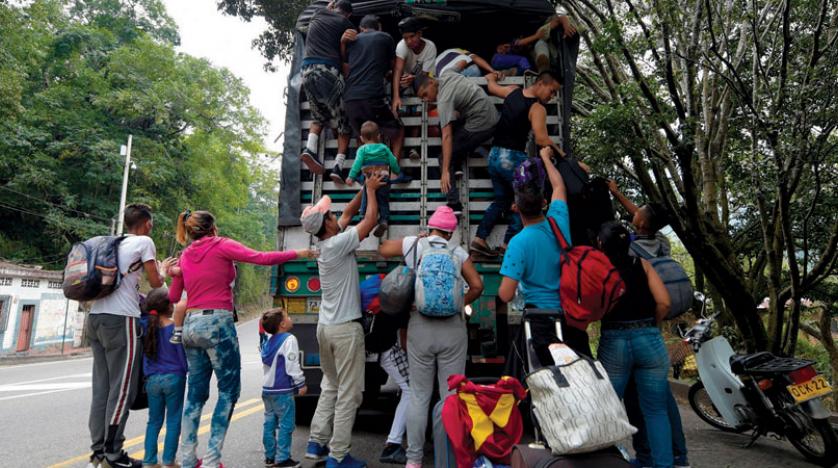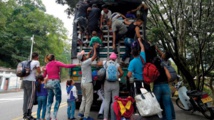The returnees are coming from Ecuador, Peru or Panama - but above all from Colombia, which officially accepted an estimated 1.8 million refugees from its neighbour, although there are no exact numbers.
The restrictions on public life to curb the spread of Covid-19, the potentially fatal respiratory disease caused by the novel coronavirus, have made the lives of Venezuelan refugees in Colombia and other countries in South America even more difficult.
Many have no papers and are the first to lose their jobs as day labourers. They quickly become homeless due to a lack of money. "They tell us that in Venezuela they don't have to pay rent," Arseniuk said.
The once-rich Venezuela is in a deep economic crisis. The country with the largest known oil reserves in the world is also one of the most corrupt countries.
Many military officers and politicians are said to be involved in criminal activities such as illegal mining and drug trafficking.
The health system is completely on its knees: there are hardly any medicines and materials, numerous doctors have already left the country, and power is cut again and again. Even water and soap are sometimes scarce. There are also hardly any other everyday items available.
In addition, a power struggle has raged for more than a year between the self-appointed interim President Juan Guaido and the authoritarian socialist President Nicolas Maduro.
However, Maduro remains firmly in the saddle, with the military on his side and the police under control.
The restrictions on public life to curb the spread of Covid-19, the potentially fatal respiratory disease caused by the novel coronavirus, have made the lives of Venezuelan refugees in Colombia and other countries in South America even more difficult.
Many have no papers and are the first to lose their jobs as day labourers. They quickly become homeless due to a lack of money. "They tell us that in Venezuela they don't have to pay rent," Arseniuk said.
The once-rich Venezuela is in a deep economic crisis. The country with the largest known oil reserves in the world is also one of the most corrupt countries.
Many military officers and politicians are said to be involved in criminal activities such as illegal mining and drug trafficking.
The health system is completely on its knees: there are hardly any medicines and materials, numerous doctors have already left the country, and power is cut again and again. Even water and soap are sometimes scarce. There are also hardly any other everyday items available.
In addition, a power struggle has raged for more than a year between the self-appointed interim President Juan Guaido and the authoritarian socialist President Nicolas Maduro.
However, Maduro remains firmly in the saddle, with the military on his side and the police under control.









 Home
Home Politics
Politics











